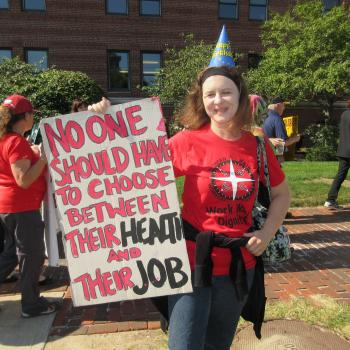In a sense, the answer is yes. Were we currently living in a state of anarchy, it is unlikely that the U.S. (or, I should say, the geographical area that now comprises the U.S.) would be experiencing the aftereffects of a bad housing bubble right now. Most people who blame the government for the current crisis, however, don’t have it mind government protection of property and contract rights. Rather, focus have tended to, well, focus on the government’s efforts to boost homeownership, as exemplified by the Carter-era Community Reinvestment Act. The CRA, according to an increasingly popular (and populist) telling, forced banks to lend to people with bad credit and low incomes, and when it turned out (unsurprisingly) that they were unable to pay back the money lent, this set off a chain reaction that led straight to the current mess.
The “CRA did it” explanation is, as I said, increasingly popular among conservative commentators and free market proponents. Among those more familiar with the details of the crisis, by contrast, the theory has less adherents. This goes even for those experts who are generally quite market-friendly. I was listening to my favorite talk radio host interview a conservative economist. The talk show host was convinced that the credit crisis was the result of “government lowering lending standards,” and seemed quite taken aback when his guest declined to endorse the view.
To see what’s wrong with the “CRA did it” line of reasoning, consider a parallel case: a city government, in order to promote affordable housing, decides to place a ceiling on the amount that can be charged for renting an apartment. According to the “CRA did it” line of reasoning, the result of such a law ought to be an explosion in the number of renters in that city, as many more people than before are able to afford apartments at the cheaper rent. In practice, however, just the opposite occurs. When the price of renting an apartment is kept artificially low, property owners respond by renting less, which leads not to a rental bubble, but to a rental shortage.
Nor would the situation change if, instead of placing direct limits on the price that can be charged in rent, government were to limit the ability of landlords to check the credit history’s of potential tenants, or to demand such things as a security deposit or first and last months rent at the beginning of a lease. People typically rent out property in order to make money. If they believe that a given potential tenant is unlikely to pay the rent he owes, they will be unlikely to rent to him unless they can receive some assurance (say, in the form of a security deposit, or advance rent) that they won’t lose out financially by renting to him. If the law prohibits them from taking such precautions, they will respond not by becoming more promiscuous in renting out their property, but by being even more cautious when doing so.
The same is true for banks and lending. If the government tries to make banks lend money to people to whom they ordinarily wouldn’t want to lend in certain areas, the expected result would be not a great expansion in lending but a contraction, as banks simply declined to operate in areas covered by the CRA, or tightened standards elsewhere to compensate for the increase in risky loans mandated by the CRA. In either case, the overall effect would be to make banks less likely to extend credit to people, not more.
Suppose, however, after rent control was established in a particular city, rental prices were to fall due to some independent cause, such that the market price for renting an apartment in the city was largely below the rent ceiling established by city regulations. In such a case, the number of rental units in the city might well expand rapidly, and it might appear to the untrained eye that this was due to the rent control law. The reality, though, would be that the increase in rental units would occur regardless of the rent control law, not because of it.
Likewise, if bankers were to get it into their heads that renting to people with poor credit histories and low incomes was a profitable venture (on the theory, for example, that housing prices will always go up), then they might very well lower lending standards, and to the untrained eye it might appear as if this loosening of standards was caused by the government mandates, rather than being incidental to it. The truth, however, would be that the loosening of standards would have occurred even if the government have never gotten into the business of promoting affordable housing. Indeed, lending institutions that were exempt from the CRA seem to have expanded risky lending during recent years just as much as those lenders subject to the act. So while I can sympathize with folks who want to find a government scapegoat for current troubles, blaming the Community Reinvestment Act is just bad economics.












